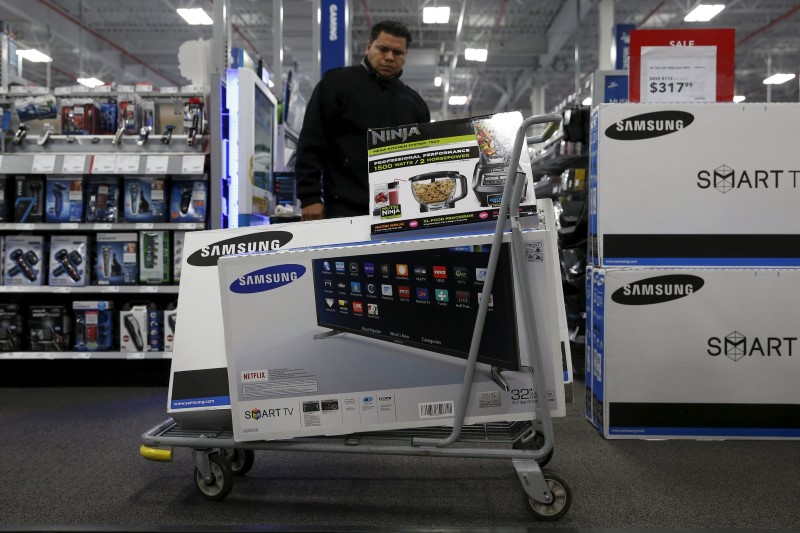Blazing Star Merger Sub completes Walgreens debt tender offer
On Wednesday, Truist Securities adjusted its outlook on Best Buy shares (NYSE:BBY), reducing the price target from $95.00 to $81.00 while keeping a Hold rating on the stock. According to InvestingPro data, the stock is currently trading below its Fair Value, with analyst targets ranging from $75 to $115. The firm’s analyst, Scot Ciccarelli, expressed concerns about the company’s future in light of current economic challenges and the unpredictable effects of tariffs. Despite Best Buy’s fourth-quarter earnings per share (EPS) and full-year 2025 guidance aligning with expectations, the company’s stock declined due to the early estimates of the potential tariff impacts. InvestingPro data shows the stock has fallen nearly 17% in the past week, though the company maintains strong fundamentals with a ’Fair’ overall financial health score.
Best Buy has estimated that an initial 10% tariff on Chinese imports, which account for approximately 60% of the company’s cost of goods sold (COGS), could negatively affect comparable store sales by around 1 percentage point. This could potentially reduce earnings by about $0.20 per share, based on a $6.40 midpoint EPS. Ciccarelli further noted that an additional 10% tariff on Chinese goods, coupled with a 25% tariff on imports from Mexico, which represent around 20% of COGS, might result in a roughly 3-point total impact on comparable store sales. This does not take into account the broader effects on consumer spending, price elasticity, and the rate at which margins may decrease.
The analyst’s comments highlighted the significant risks to Best Buy’s earnings, prompting Truist Securities to maintain a cautious stance on the stock. The lowered price target reflects these concerns about the impact of tariffs on the company’s financial performance. Despite these challenges, Best Buy maintains a solid 5% dividend yield and has increased dividends for 7 consecutive years. Best Buy’s management and investors will likely continue to monitor these macroeconomic factors closely as they navigate the uncertain market conditions. For deeper insights into Best Buy’s financial health and future prospects, access the comprehensive Pro Research Report available on InvestingPro, which includes 12 additional exclusive ProTips and detailed valuation metrics.
In other recent news, Best Buy’s fiscal fourth-quarter 2024 earnings exceeded expectations, prompting several analysts to adjust their price targets for the company’s shares. Loop Capital lowered its price target from $100 to $90 while maintaining a Buy rating, citing concerns over tariffs impacting fiscal 2025 guidance. Similarly, Piper Sandler reduced its price target from $102 to $92, maintaining an Overweight rating, and highlighted the challenges posed by tariffs and a lack of new product innovation. KeyBanc Capital Markets maintained a Sector Weight rating, acknowledging Best Buy’s strong performance but expressing caution over tariff-related uncertainties.
Telsey Advisory Group also adjusted its price target to $100 from $110, keeping an Outperform rating, and noted Best Buy’s efforts to launch new initiatives like the Best Buy Marketplace. Evercore ISI reduced its price target to $80 from $95, maintaining an In Line rating, and pointed out the company’s ongoing competitive pressures and margin erosion. Despite these challenges, Evercore ISI sees potential for stabilization with expected improvements in gross margins and a positive outlook for fiscal 2026. Analysts generally remain optimistic about Best Buy’s operational resilience, despite the external pressures from tariffs and a challenging retail environment.
This article was generated with the support of AI and reviewed by an editor. For more information see our T&C.
